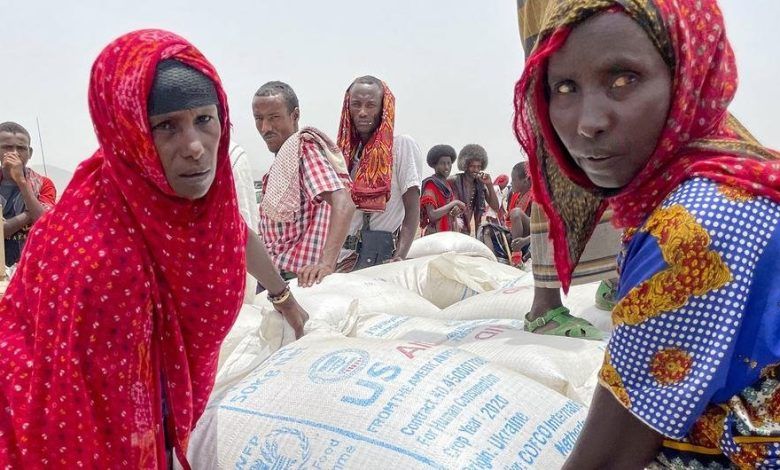WFP Halts Nutrition Aid for 650,000 Women and Children in Ethiopia Amid Severe Funding Crisis

The World Food Programme (WFP) announced on Tuesday that it has been forced to suspend life-saving nutrition assistance to 650,000 malnourished women and children in Ethiopia, citing a critical funding shortfall that threatens to deepen an already dire humanitarian crisis in the Horn of Africa.
The suspension, effective in May, comes as part of a broader disruption in humanitarian operations across the country.
The UN agency warned that unless urgent funding is secured, over 3.6 million vulnerable people across Ethiopia will be cut off from vital food aid in the coming weeks.
“WFP is being forced to halt treatment for 650,000 malnourished women and children in May due to insufficient funding,” the agency stated. “We had aimed to reach two million mothers and children in 2025 with essential nutritional support.”
Ethiopia, a country of over 130 million people, is grappling with a convergence of humanitarian emergencies—from prolonged conflict and climate-induced drought to a surge in regional refugee inflows.
The WFP currently faces a $222 million funding gap for its April to September operations, placing millions at risk of deepening hunger and malnutrition.
The funding crisis has been exacerbated by significant cuts to international aid, particularly following an executive order signed by U.S. President Donald Trump in January 2025, which imposed a three-month freeze on all foreign assistance. Several European nations have also reduced their aid budgets, compounding the pressure on frontline agencies like the WFP.
“This is a critical moment to remind the world that the humanitarian situation in Ethiopia is deteriorating rapidly,” said Zlatan Milisic, WFP’s Country Director for Ethiopia. “If we do not receive immediate support, the consequences will be devastating.”
The announcement comes as Ethiopia struggles to recover from the two-year civil war in Tigray that ended in late 2022, leaving an estimated 600,000 dead and nearly one million displaced. Armed conflict continues to rage in the populous Amhara and Oromia regions, displacing hundreds of thousands more and hindering humanitarian access.
In addition, Ethiopia is facing a growing influx of refugees from neighboring Sudan, where civil war erupted in April 2023, and from South Sudan, a country still trapped in cycles of conflict. The WFP warned that cash and food assistance for up to one million refugees in Ethiopia could be halted as early as June unless donor contributions increase significantly.
The country is also battling the effects of severe drought, especially in the Somali region, where rainfall has failed for successive seasons, pushing communities to the brink of famine.
Globally, the funding landscape for humanitarian aid is shrinking. According to the Organisation for Economic Cooperation and Development (OECD), international development assistance declined by 7.1 percent between 2023 and 2024, marking the first drop in six years.
With growing needs and shrinking support, humanitarian leaders are urging the global community to step up. Without decisive intervention, Ethiopia—already on the edge—risks plunging into a full-scale humanitarian catastrophe.





